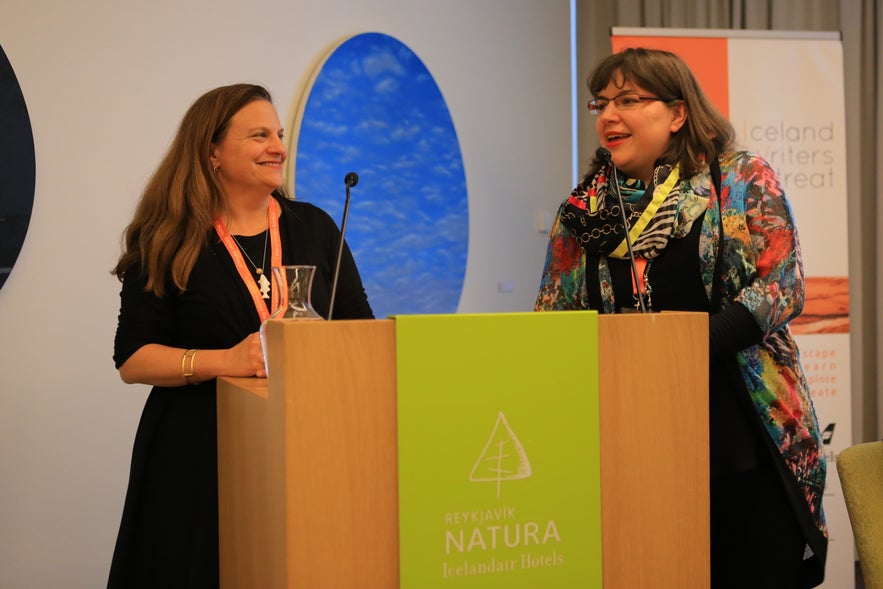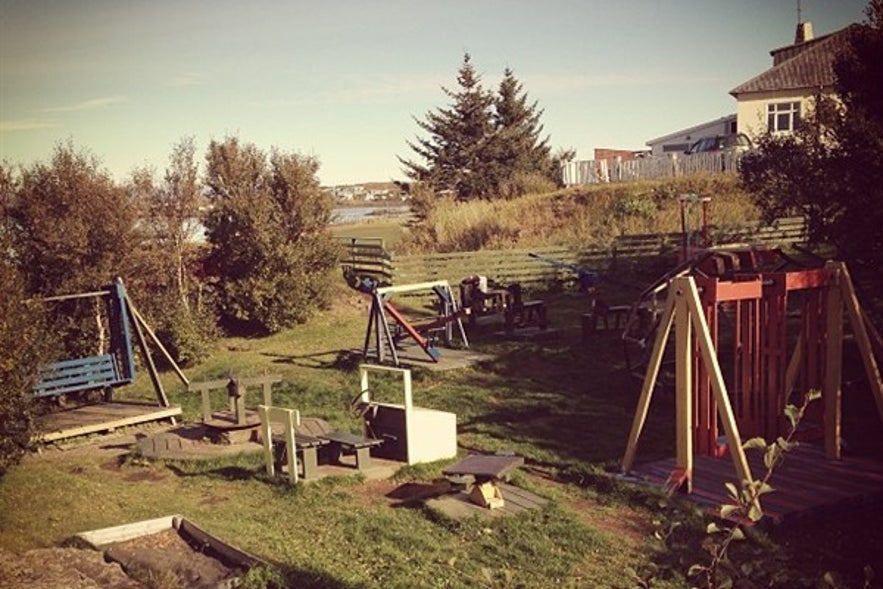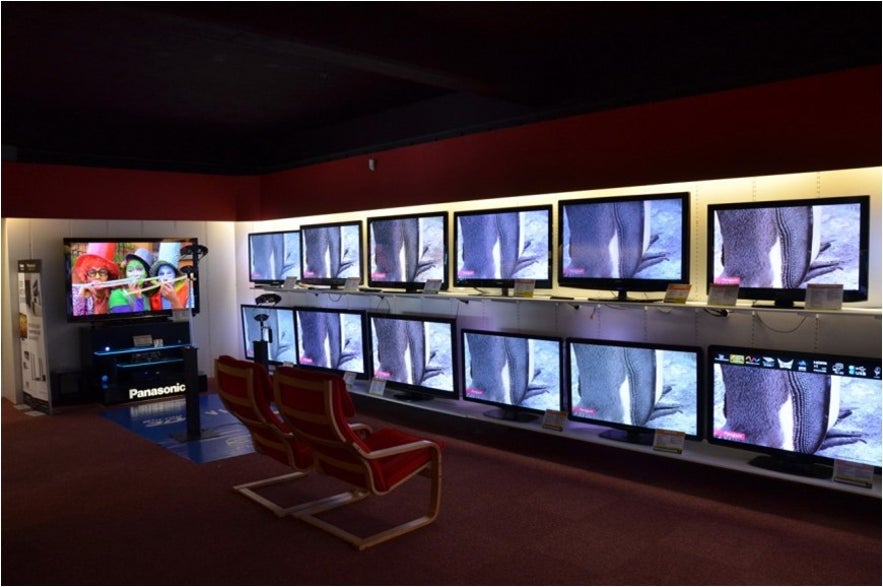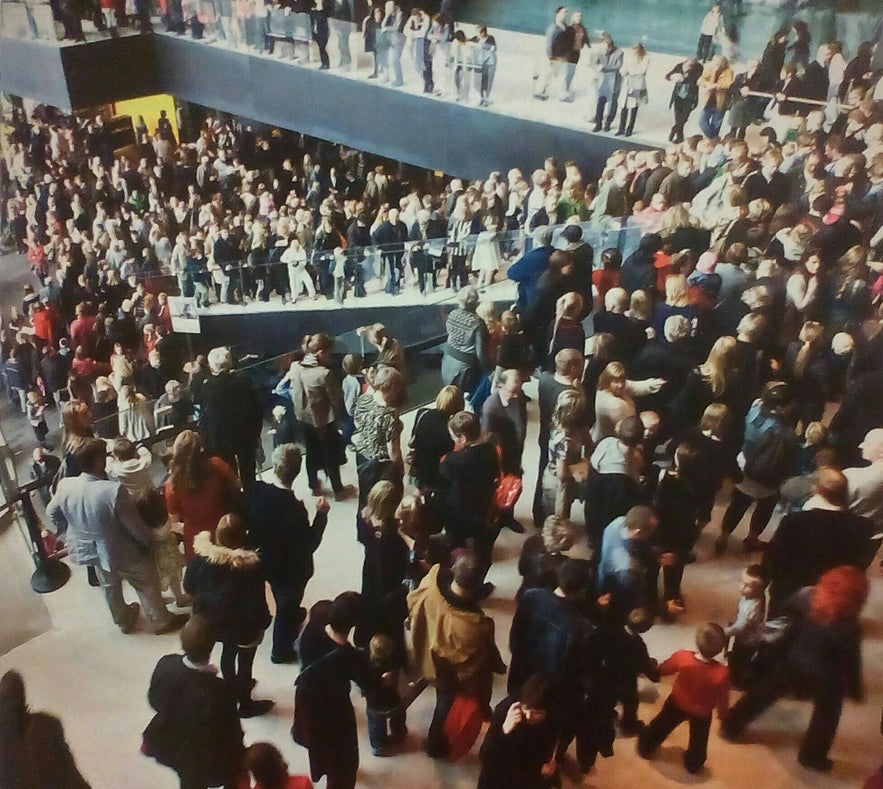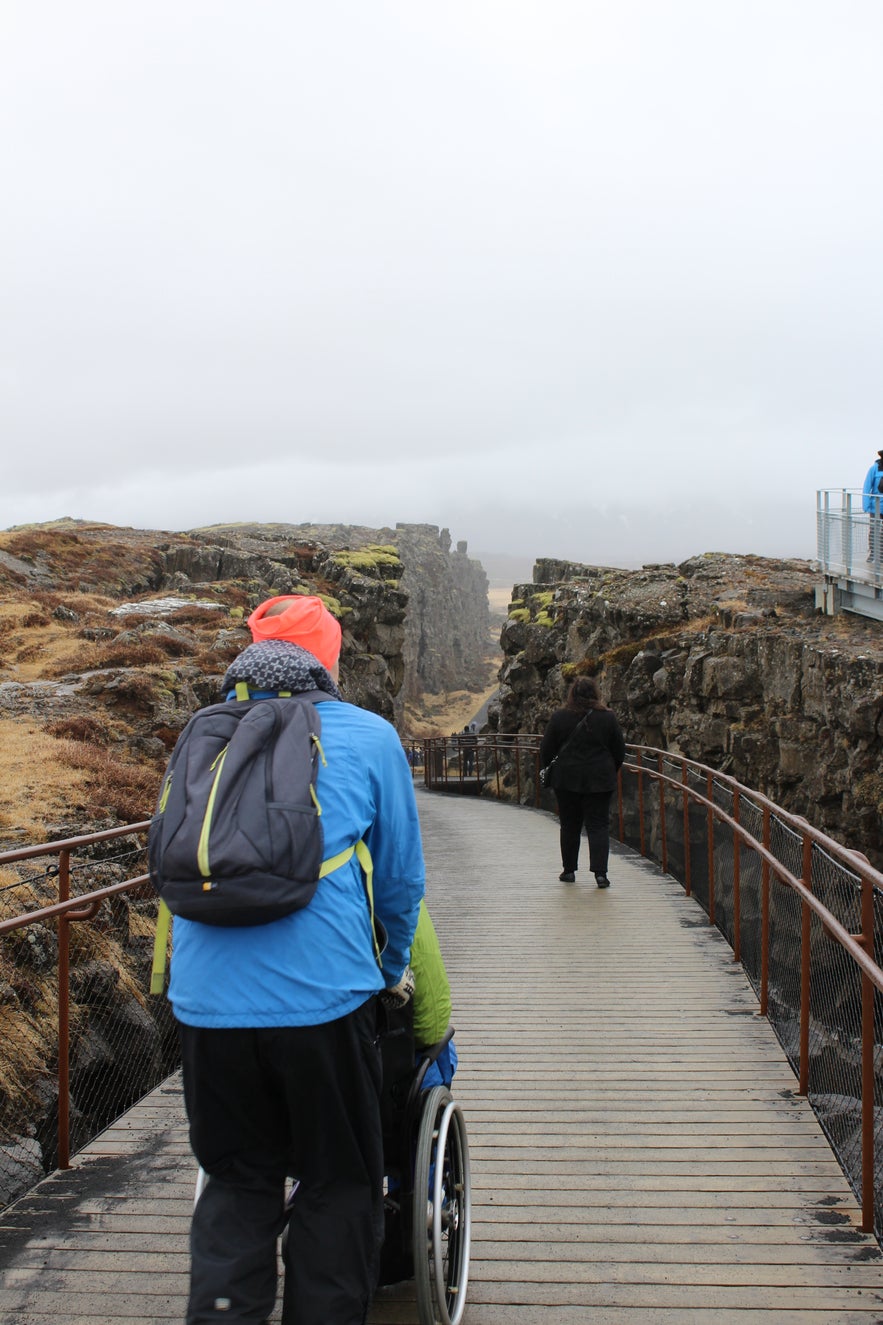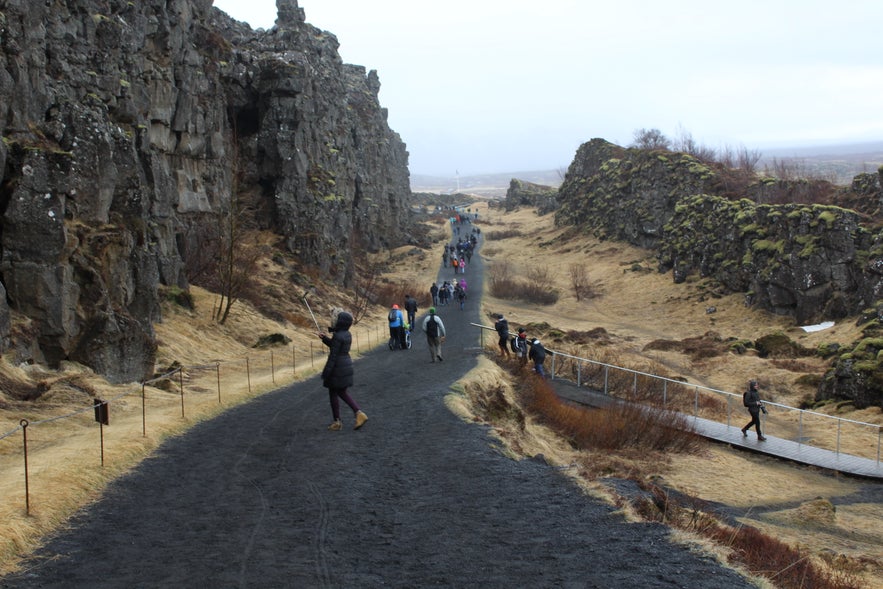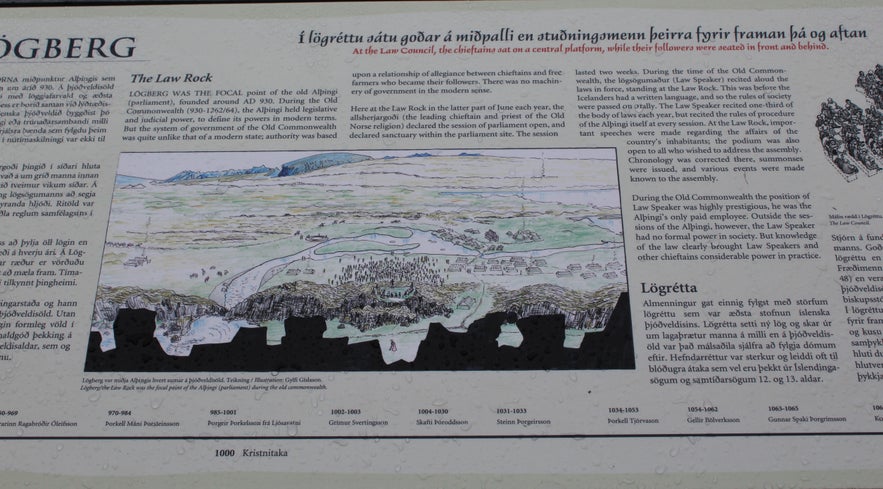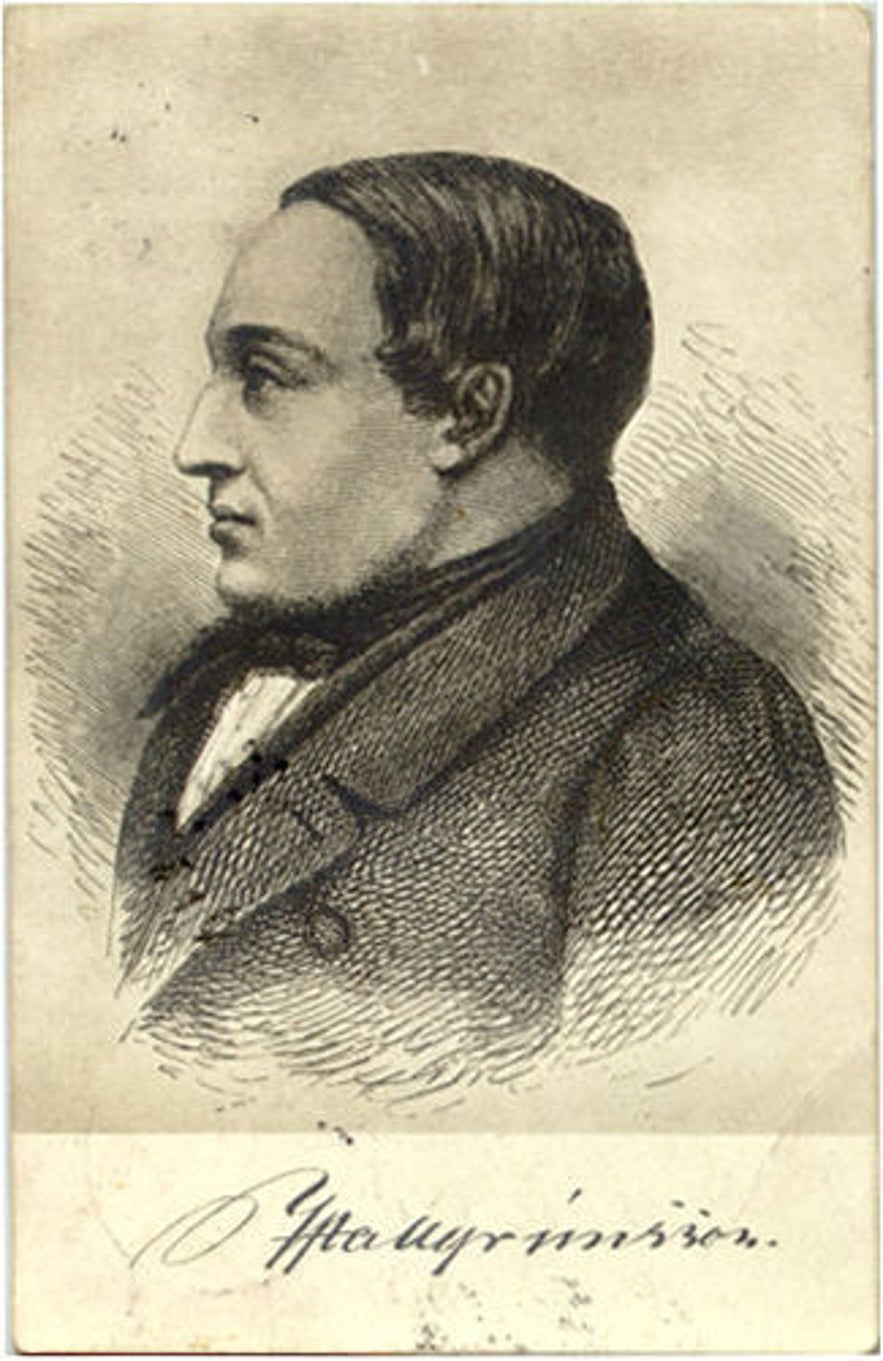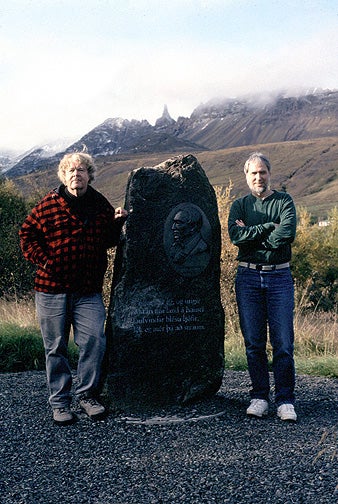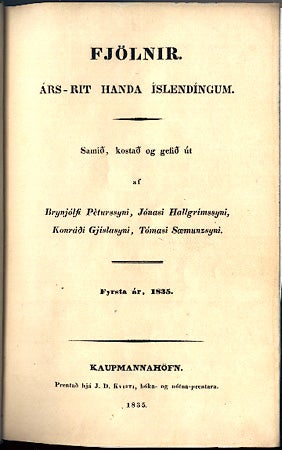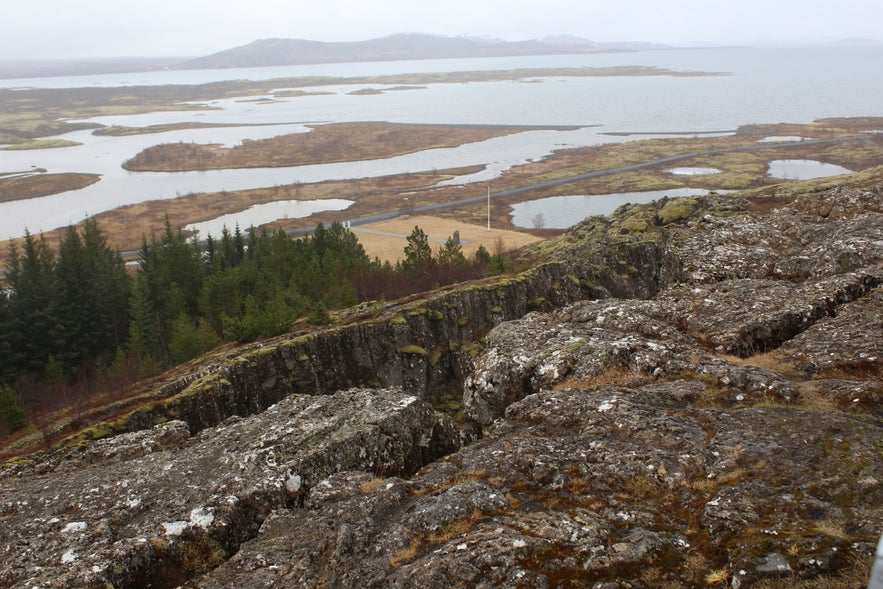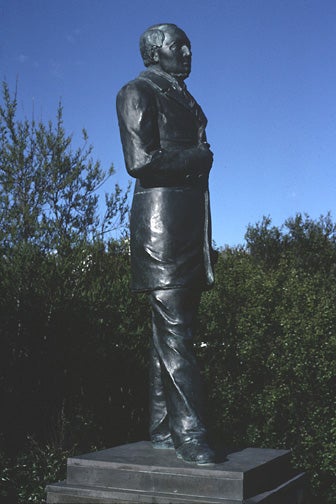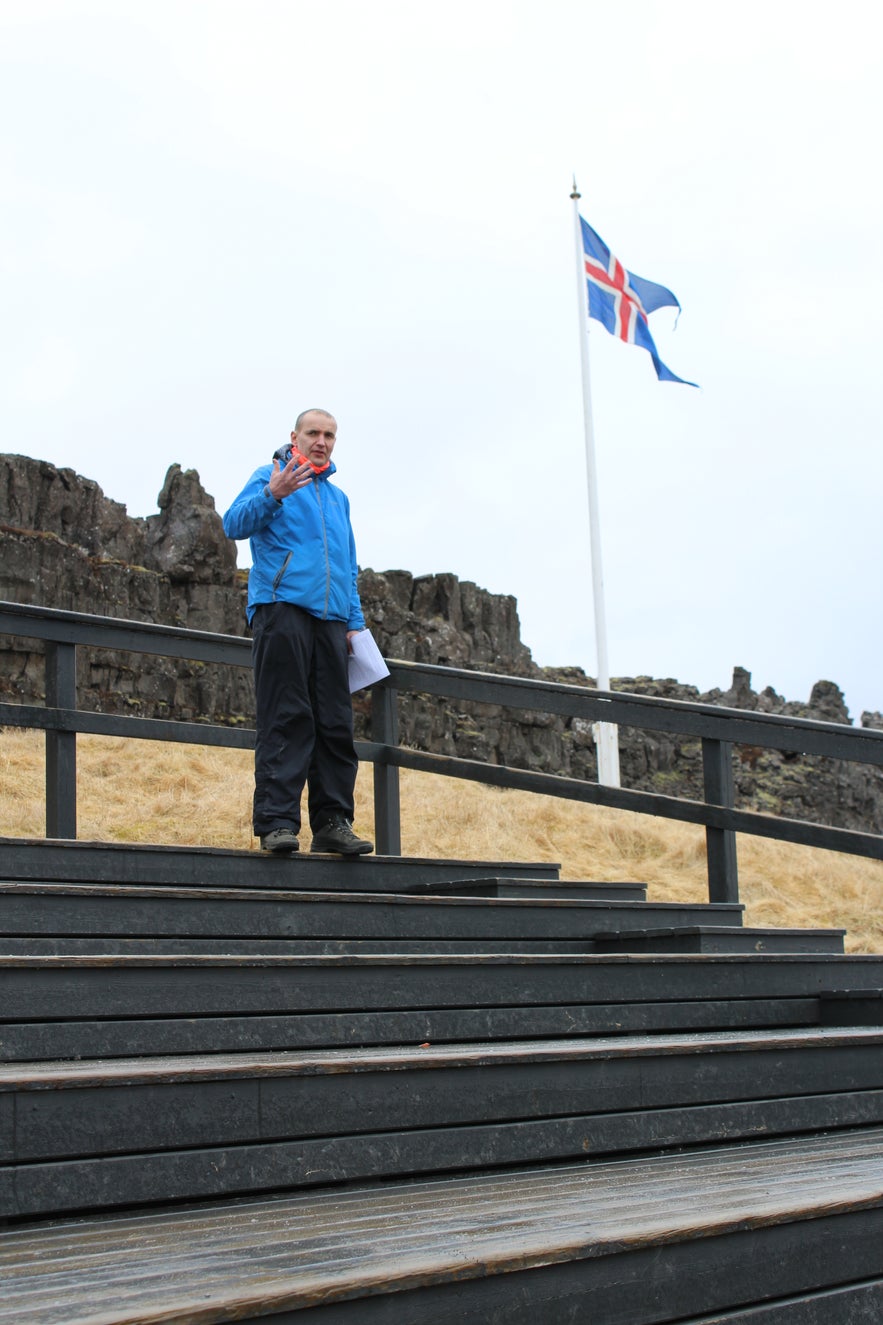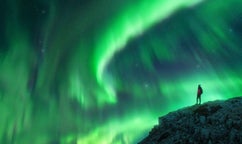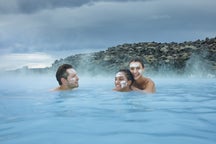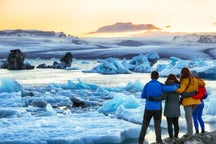
Eliza and Guðni - Insights about Icelanders

Not being an Icelander myself, I don’t feel qualified to generalise. But I can offer insights about particular Icelanders whom I’ve meet, either in the flesh or over our amazing World Wide Web.
I got to know Eliza through the Iceland Writers Retreat (IWR), an annual event in Reykjavík that she co-founded with Erica Green.
Erica is on the left and Eliza is on the right, this photo courtesy of IWR and Roman Gerasymenko
It took me a year to earn funding to attend IWR and, during that time, I became a friendly acquaintance by email with both Eliza and her husband Guðni, mostly because of my questions. I always have plenty of questions!
First I wanted to know about children’s play areas and nursery settings in Iceland during the 1980’s. So I asked Eliza and she didn’t know but said she would ask her husband. Through Eliza, Guðni offered me some helpful suggestions- about playschool, outdoor playgrounds and what park equipment was available at that time.
Bjössaróló Theme Park was designed and constructed by Björn H. Guðmundsson (1911-1998), a craftsman, master carpenter, idealist and environmental pioneer. He began this project near Borgarnes in western Iceland in 1979 using recycled wood, metals and other salvaged materials for the play equipment
Next I wondered if there was a public place in Reykjavík, during 1995, where people could watch something together on television. I was thinking of the electrical section of a large department store. I asked Eliza about this and she asked Guðni. He replied with information about Sjónvarpsmiðstöðin, a television shop in town that has been in business since 1971. The perfect setting for one scene in my novel-in-progress!
Sjónvarpsmiðstöðin
Boldly, I persevered with yet more questions. I needed to know which television programmes were showing on a particular morning in 1995. I asked Eliza and she, very obligingly, referred my query on to Guðni. He promptly answered with a picture of the television guide for that very day. How amazing and helpful was that?!

When I asked Eliza about the queueing habits of Icelanders, she knew the answer to this question herself.
Detail of an image by Bára that was taken during the inaugural concert at Harpa Concert Hall
This year I physically met both Eliza and Guðni at IWR 2016 after a year of email communications.
Guðni led a Golden Circle tour for the IWR writers. At Þingvellir, the open seam where two of Earth’s huge tectonic plates meet and are slowly spreading apart, Guðni steered one participant in her wheelchair down a ramp.
He jogged down! I was worried and glanced at Eliza but she waved her hand and explained that Guðni was accustomed to helping a disabled relative and, as I watched the outcome, I saw the wheelchair slow from friction to a safe speed when the track levelled out.
He had obviously made a sound risk assessment while also providing this lady with a thrilling downhill adventure.
At Lögberg (the Law Rock) Guðni read a poem to us, both in its original Icelandic and in English.
Lögberg has been a focal point for Icelandic leaders since 930 AD. On this spot, the early rules of Icelandic society and procedures for the Alþingi (National Assembly) were recited, important speeches were made, summons were issued and significant events announced.
The poem Guðni read was Ísland (Iceland), written and published in 1835 by the Icelandic poet and natural scientist Jónas Hallgrímsson (1807-1845).
Iceland
Iceland, fortunate isle! Our beautiful, bountiful mother!
Where are your fortune and fame, freedom and virtue of old?
All things on earth are transient: the days of your greatness and glory
flicker like flames in the night, far in the depths of the past.
Comely and fair was the country, crested with snow-covered glaciers,
azure and empty the sky, ocean resplendently bright.
Here came our famous forebears, the freedom-worshipping heroes,
over the sea from the east, eager to settle the land.
Raising their families on farms in the flowering laps of the valleys,
hearty and happy they lived, hugely content with their lot.
Up on the outcrops of lava where Axe River plummets forever
into the Almanna Gorge, Althing convened every year.
There lay old Þorgeir, thoughtfully charting our change of religion.
There strode Gissur and Geir, Gunnar and Héðinn and Njáll.
Heroes rode through the regions, and under the crags on the coastline
floated their fabulous ships, ferrying wealth from abroad.
O it is bitter to stand here stalled and penned in the present!
Men full of sloth and asleep simply drop out of the race!
How have we treated our treasure during these six hundred summers?
Have we trod promising paths, progress and virtue our goal?
Comely and fair is the country, crested with snow-covered glaciers,
azure and empty the sky, ocean resplendently bright.
Ah! but up on the lava where Axe River plummets forever
into the Almanna Gorge, Althing is vanished and gone.
Snorri's old site is a sheep-pen; the Law Rock is hidden in heather,
blue with the berries that make boys — and the ravens — a feast.
Oh you children of Iceland, old and young men together!
See how your forefathers' fame faltered — and passed from the earth!
Ísland
Ísland! farsældafrón og hagsælda hrímhvíta móðir!
Hvar er þín fornaldarfrægð, frelsið og manndáðin best?
Allt er í heiminum hverfult, og stund þíns fegursta frama
lýsir, sem leiftur um nótt, langt fram á horfinni öld.
Landið var fagurt og frítt, og fannhvítir jöklanna tindar,
himininn heiður og blár, hafið var skínandi bjart.
Þá komu feðurnir frægu og frjálsræðishetjurnar góðu,
austan um hyldýpishaf, hingað í sælunnar reit.
Reistu sér byggðir og bú í blómguðu dalanna skauti;
ukust að íþrótt og frægð, undu svo glaðir við sitt.
Hátt á eldhrauni upp, þar sem enn þá Öxará rennur
ofan í Almannagjá, alþingið feðranna stóð.
Þar stóð hann Þorgeir á þingi er við trúnni var tekið af lýði.
Þar komu Gissur og Geir, Gunnar og Héðinn og Njáll.
Þá riðu hetjur um héröð, og skrautbúin skip fyrir landi
flutu með fríðasta lið, færandi varninginnn heim.
Það er svo bágt að standa' í stað, og mönnunum munar
annaðhvurt aftur á bak ellegar nokkuð á leið.
Hvað er þá orðið okkart starf í sex hundruð sumur?
Höfum við gengið til góðs götuna fram eftir veg?
Landið er fagurt og frítt, og fannhvítir jöklanna tindar,
himininn heiður og blár, hafið er skínandi bjart.
En á eldhrauni upp, þar sem enn þá Öxará rennur
ofan í Almannagjá, alþing er horfið á braut.
Nú er hún Snorrabúð stekkur, og lyngið á lögbergi helga
blánar af berjum hvurt ár, börnum og hröfnum að leik.
Ó þér unglingafjöld og Íslands fullorðnu synir!
Svona er feðranna frægð fallin í gleymsku og dá!
This translation of Ísland was made by Dick Ringler of the University of Wisconsin in Madison, a man who devoted many years of his life to the study of Jónas’ work.
Dick Ringler with Peter C. Gorman of University of Wisconsin Library Services, standing either side of a memorial stone to Jónas Hallgrímsson in Öxnadalur
Guðni explained that he chose to read Ísland to us because of its majesty and the influence it had on Icelanders in the years prior to their national independence (1944) from Denmark.
Jónas was a feisty young man of 28 when he and some friends from university founded a progressive, new Icelandic journal called Fjölnir.
The word “fjölnir” appeared in Snorri Sturluson’s Prose Edda, where it was used to imply "manyness, multitudinousness." Konráð Gíslason , a co-founder of Fjölnir, explained that their journal was intended “to attract to itself all the forces wishing to work together in the nation's interest, and we wanted its name to suggest this".
A view of Þingvellir (looking west) during Jónas’ lifetime
Jónas poem Ísland was published in Copenhagen in the first issue of Fjölnir. The Fjölnismenn were passionate about truth and a renewed integrity for the Icelandic language. Although still under Danish rule, they refused to allow any words of Danish dialect into their journal. Fjölnir was to be written purely in Icelandic. They were also keen to encourage national independence for Iceland and a reinstatement of the Alþingi at its ancient site of Þingvellir.
A contemporary view of Þingvellir (looking east)
In doing this research, I have learned that Guðni chose to read Jónas’ most famous poem at a location intrinsic to the poet’s personal manifesto.
This bronze statue of Jónas, by the sculptor Einar Jónsson, overlooks The Pond (Tjörnin) in downtown Reykjavík
If you wish to know more about Jónas Hallgrímsson, here’s a link to Ringler’s extensive research:
Jónas Hallgrímsson Selected Poetry and Prose, <http://digital.library.wisc.edu/1711.dl/Jonas>, tr. and ed. Dick Ringler (Madison, WI: University of Wisconsin-Madison General Library System, 1999).2
Guðni’s reading of Ísland at the Law Rock happened mid-April 2016. In retrospect, it seems an even more appropriate gesture as he himself has since become a very popular candidate for the Icelandic presidency!
บล็อกอื่นที่น่าสนใจ
คุยเฟื่องเรื่องแสงเหนือหรือออโรร่า Aurora!!
แสง Aurora ที่ใครหลายคนต่างฝันอยากจะได้มีโอกาสชื่นชมมหัศจรรย์แห่งความงามของมันสักครั้งแสงสีเขียว สีแดง สีม่วง สีชมพู ที่เกิดจากอนุภาคของปะจุไฟฟ้าทำปฏิกิริยากับธาตุต่างๆอทิอะตอมออซิเจนหรือธาตุไนโตรเจนกอ่านเพิ่มเที่ยวไอซ์แลนด์ช่วงเดือนไหนดี
ไอซ์แลนด์เป็นประเทศที่ใครๆก็มักจะบอกว่ามาช่วงไหนก็สวย เพราะทุกฤดูที่นี่สวยแปลกแตกต่างกันไปตามแบบเสน่ห์เฉพาะตัวแบบไม่มีใครยอมใคร ทำให้นักท่องเที่ยวที่เคยมาที่นี่ กลับมาเที่ยวอีกครั้งแล้วครั้งเล่า เพรอ่านเพิ่มChasing Waterfalls in Iceland
Iceland is spectacular in so many ways and Icelandic nature is quite unique with its vast landscape, volcanic activity, geothermal areas, glacier lagoons and sceneries, black sand beaches and spectอ่านเพิ่ม

ดาวน์โหลดตลาดการท่องเที่ยวที่ใหญ่ที่สุดของไอซ์แลนด์ลงในโทรศัพท์ของคุณเพื่อจัดการการเดินทางทั้งหมดของคุณได้ในที่เดียว
สแกนรหัส QR นี้ด้วยกล้องในโทรศัพท์ของคุณแล้วกดลิงก์ที่ปรากฏขึ้นเพื่อเพิ่มตลาดการท่องเที่ยวที่ใหญ่ที่สุดของไอซ์แลนด์ไว้ในกระเป๋าของคุณ ป้อนหมายเลขโทรศัพท์หรือที่อยู่อีเมลของคุณเพื่อรับ SMS หรืออีเมลพร้อมลิงก์ดาวน์โหลด
